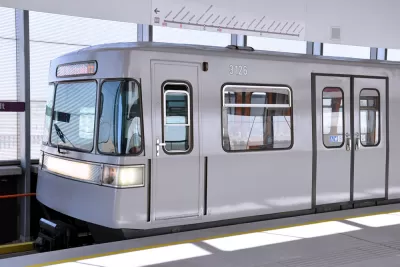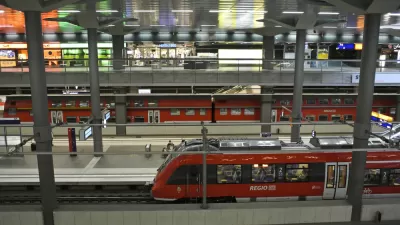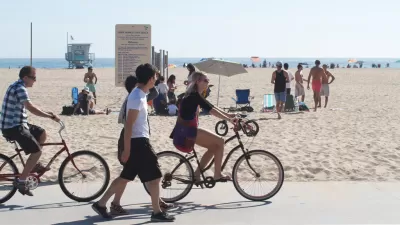How did Vienna, Austria, substantially reduce car trips while increasing bicycling and trips taken by public transportation over 25 years? A new paper published in the International Journal of Sustainable Transportation provides answers.

"Vienna's Path to Sustainable Transport" examines the politics of implementing sustainable transport policies in Vienna over a 25-year period from 1993 to 2014, leading to a reduction in the car mode share of daily trips from 40 percent to 27 percent while doubling cycling mode share and increasing transit mode share from 29 percent to 39 percent.
"The key to Vienna’s success has been a coordinated package of mutually reinforcing transport and land-use policies that have made car use slower, less convenient, and more costly, while improving conditions for walking, cycling, and public transport," notes the abstract.
Two strategies in particular deserve credit, according to researchers Ralph Buehler, professor of Urban Affairs, Virginia Tech; John Pucher, professor emeritus of Urban Planning, Rutgers University, and Alan Altshuler, professor emeritus of Urban Policy and Planning, the John F. Kennedy School of Government at Harvard University:
- Expansion of the U-Bahn or metro, a young system opening in 1978, two years after D.C.'s now-troubled Metro.
- Parking management
On a political level, the abstract notes two additional factors:
- "The continuity of social democratic governments in Vienna since 1945 has provided a crucial political basis for long-term implementation.
- "The Greens have vigorously pushed for accelerating implementation of sustainable transport policies since becoming part of the ruling coalition government in 2010."
Vienna, as well as other Western European cities, have made great progress in moving toward sustainable transportation patterns. This paper provides lessons for other cities to reduce auto-dependence.
FULL STORY: Vienna's path to sustainable transport

Planetizen Federal Action Tracker
A weekly monitor of how Trump’s orders and actions are impacting planners and planning in America.

Map: Where Senate Republicans Want to Sell Your Public Lands
For public land advocates, the Senate Republicans’ proposal to sell millions of acres of public land in the West is “the biggest fight of their careers.”

Restaurant Patios Were a Pandemic Win — Why Were They so Hard to Keep?
Social distancing requirements and changes in travel patterns prompted cities to pilot new uses for street and sidewalk space. Then it got complicated.

California Homeless Arrests, Citations Spike After Ruling
An investigation reveals that anti-homeless actions increased up to 500% after Grants Pass v. Johnson — even in cities claiming no policy change.

Albuquerque Route 66 Motels Become Affordable Housing
A $4 million city fund is incentivizing developers to breathe new life into derelict midcentury motels.

DC Area County Eliminates Bus Fares
Montgomery County joins a growing trend of making transit free.
Urban Design for Planners 1: Software Tools
This six-course series explores essential urban design concepts using open source software and equips planners with the tools they need to participate fully in the urban design process.
Planning for Universal Design
Learn the tools for implementing Universal Design in planning regulations.
Heyer Gruel & Associates PA
JM Goldson LLC
Custer County Colorado
City of Camden Redevelopment Agency
City of Astoria
Transportation Research & Education Center (TREC) at Portland State University
Camden Redevelopment Agency
City of Claremont
Municipality of Princeton (NJ)




























